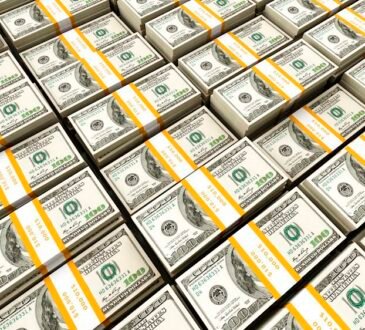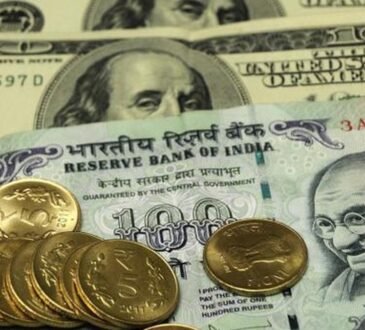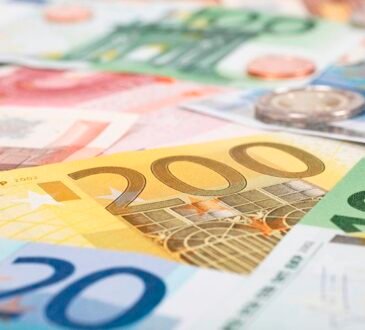The U.S. Dollar rallied against major currencies during the week ended July 19 as dramatic developments unfolded in the U.S. political scene. The U.S. Dollar strengthened against the euro, the British pound, the Australian dollar, the Canadian Dollar and the Swedish Krona in a week that saw an assassination attempt on former President Donald Trump. The greenback however slipped against the Japanese yen and the Swiss franc.
The Dollar Index of DXY, which measures the Dollar’s strength against a basket of 6 currencies rebounded 0.26 percent during the week ended July 19. The index had slipped 0.75 percent during the week ended July 12 and 0.94 percent during the week ended July 5.
The Dollar got a boost following Sunday’s incident at Pennsylvania where former U.S. President Donald Trump was shot at. Safe haven demand as well as market perception that the event raised the odds of a Trump win in the presidential race bolstered the greenback.
Close on the heels of the softer-than-expected CPI data released a week earlier, Monday’s dovish hints from Fed Chair Jerome Powell reinforced hopes of a Fed rate cut in September.
Data released by the U.S. Census Bureau on Tuesday showed month-on-month Retail sales in the U.S. remaining flat as expected in June versus an upwardly revised 0.3 percent gain in May.
Meanwhile, data released on Thursday showed the number of people claiming unemployment benefits in the U.S. increasing to 243 thousand in the week ended July 13 from 223 thousand in the previous week, surpassing market expectations of 230 thousand.
Amidst these developments, the DXY touched a weekly high of 104.51 on Tuesday and dropped to a weekly low of 103.65 on Wednesday, before recovering and eventually closing at 104.36 on Friday.
The euro slipped against the U.S. Dollar during the week ended July 19 despite ECB’s open forward guidance that followed the status quo on interest rates on Thursday. The EUR/USD pair declined to 1.0877 on July 19, from 1.0906 a week earlier, recording a decrease of 0.27 percent. The pair ranged between the low of 1.0871 recorded on Tuesday and the high of 1.0948 touched on Wednesday.
The U.S. Dollar surged against the British pound also during the week ended July 19. The GBP/USD pair which had closed at 1.2992 on July 12, dropped to 1.2919 by July 19. The sterling’s weakness came despite a higher-than-expected inflation reading that lifted the pound to a one-year high of $1.3046 on Wednesday. Data released on Thursday showed a steady unemployment rate in line with expectations whereas a larger-than-expected decline in retail sales on Friday dragged the pair to the week’s low of 1.2900.
The Australian Dollar too plunged 1.5 percent against the U.S. Dollar during the week ended July 19, ending its five-week winning streak amidst weak economic data from China. The AUD/USD pair which had closed at 0.6783 on July 12 rose to 0.6791 on Monday before dropping to 0.6680 on Friday. The pair edged up and finally closed at 0.6682 on Friday.
The past week however saw the Japanese yen extend gains against the U.S. Dollar. The USD/JPY pair which was at 157.89 on July 12 slipped to 157.49 in a week’s time. The pair had touched a high of 158.87 on Tuesday and a low of 155.37 on Thursday. The yen’s strength came amidst inflation in Japan remaining steady at 2.8 percent. The prospect of Bank of Japan’s monetary policy outlook tilting to the hawkish side and diverging from the Fed’s looming monetary policy easing benefitted the yen.
On the horizon are key economic data releases ranging from Consumer Confidence readings from Euro Area as well as PMI updates from Australia, Japan, Euro Area, U.K. and U.S. etc. Given the linkage to Fed’s rate cut dynamics, the GDP update from the U.S. on Thursday and the PCE-based inflation readings on Friday are expected to sway currency market movements significantly.
Nevertheless, political dimensions again assumed preeminence with Joe Biden ending his reelection bid. Amidst the changed electoral landscape as well as the lingering expectation of a Fed rate cut in September, the Dollar index has edged down to 104.31.
The EUR/USD pair has increased to 1.0882. The GBP/USD pair has however slipped to 1.2916. The AUD/USD pair has slipped to 0.6637. The USD/JPY pair has meanwhile declined all the way to 156.84.
For comments and feedback: contact editorial@rttnews.com




